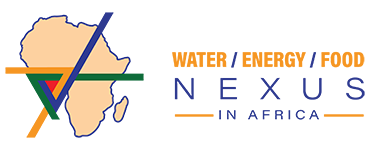Description:
The International Water Management Institute (IWMI) is looking for enthusiastic students to tackle Africa’s food, water and climate change challenges through research and development under the Institute’s internship program. These interns will work closely with CGIAR scientists and country partners to gain exposure and enhance their skills in research for development. Through this internship, enthusiastic individuals will be able to develop bottom-up polycentric governance processes that provide opportunities for self-organization and learning across systems, and independent decision-making for adaptation planning and implementation at the local level. As part of the CGIAR Building Systemic Resilience Against Climate Variability and Extremes (ClimBeR) initiative, the interns will work closely with the ClimBeR Work Package 4 team (Governance for Resilience [G4R]) to conduct a detailed scoping study (including a systematic literature review); and develop an integrated theoretical framework that combines institutional, social and policy network approaches to promote socially equitable transformative adaptation, in order to support the implementation of sustainable strategies in response to climate change.
The ClimBeR initiative will work closely with country partners in Senegal, Zambia, Guatemala, Kenya, Morocco and the Philippines to integrate bottom-up multi-scale polycentric governance frameworks for reducing systemic cascading risks, and co-demonstrate transformative adaptation options with relevant actors to illustrate applicability across scale to target local investment. There are several internship opportunities within the ClimBeR initiative to work closely with a team of researchers on a range of activities including the following:
- Review and document existing and proposed policies related to climate, water and food at multiple scales and multi-sector levels.
- Review institutional capacity and implement already developed frameworks, ensuring appropriate multi-scale governance and accountability in bottom-up processes to enable transformative adaptation.
- Assist in the development of a polycentric framework for potential climate adaptation plans, integrating resilience and adaptive capacity for transformative adaptation.
- Review the anticipatory action governance structures for adaptation in socio-ecological systems, and assess how organizations and government agencies anticipate changes to vulnerable ecosystem services (e.g., water) in the priority countries of the ClimBeR initiative and adapt governance structures accordingly.
- Co-conceptualize an early warning to early action and early finance (AWARE) framework and implement it to increase food and nutrition security of vulnerable households.
Qualifications, exposure and skills:
- MSc or PhD or students who have recently graduated in social sciences or a related discipline (sociology, public policy, community development, innovation systems, climate adaptation, or development economics).
- Experience in using a combination of qualitative and quantitative research methods and participatory approaches to design and conduct field research within a systems thinking context.
- Experience in policy engagements and advocacy.
- Ability to communicate research findings in English and/or French.
- Experience in using quantitative (e.g., STATA, SPSS) and qualitative (e.g., NVivo, ATLAS.ti) data analysis software.
- Solid working knowledge of English and French (preferable).
The interns will be based at one of IWMI’s offices (Accra, Ghana; Cairo, Egypt; or Colombo, Sri Lanka), or will work remotely in any of the priority countries of the ClimBeR initiative, depending on the prevailing Covid-19 conditions. Successful candidates will receive a monthly stipend.
The duration of the internship will be for 6 months, and the level of effort is approximately 20 hours per week.
To apply, visit www.iwmi.org/jobs. Applications must be submitted by 24:00 (Colombo time) on March 31, 2022 (Thursday).
Click here to apply!
Based out of headquarters in Colombo, Sri Lanka or at one of the institute’s major regional offices in Africa.
Closing Date – March 31, 2022
This announcement is available here!
